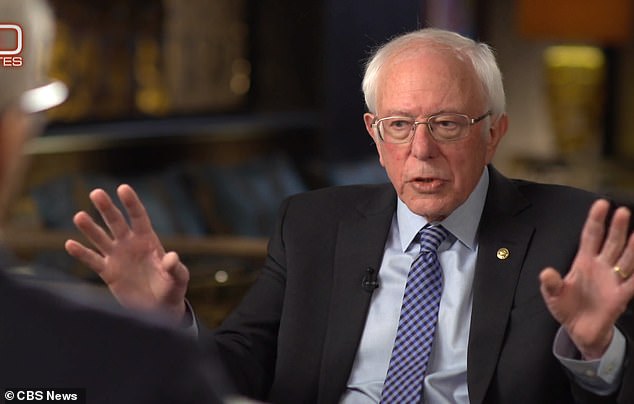Listen to the full podcast episode or read the full transcript here.
What are some of the most promising events in Latin America today?
Of course, the election of Javier Milei. He took office on December 10th, and it’s all quite encouraging. He had a large decree that repealed many laws and modified others to liberate the Argentine economy, which is currently one of the most regulated economies in the world.
It will depend, of course, on congress and the courts which can potentially block many of his initiatives. Here at Cato, my colleague Gabriel Calderon and I have focused on his main proposal: the dollarization of Argentina’s economy. In general, we think it’s a very good policy, but in that respect, I’ve been disappointed with the beginning of Milei’s government. We can discuss that further if you like.
First, let’s set the stage. Could you describe the situation in Argentina before Milei?
Well, the main problem was inflation, which was around 140 percent at the time of his election in November. And, of course, this is caused by the central bank. Argentina’s central bank is particularly irresponsible even within a Latin American context. Argentina also has one of the most regulated economies in the world. Forty percent of the population is living in poverty, and its economy hasn’t grown in over a decade.
This is especially sad because Argentina was incredibly successful in the 19th century. Its 1853 constitution was drafted based on the ideas of a classical liberal author called Juan Bautista Alberdi, who basically called for free trade, unrestricted industry, free immigration, and infrastructure to connect the country. And that’s what they did. It wasn’t immediate; it took a few decades, but from 1880 to 1916, you had this very successful export model that made Argentina into one of the richest countries in the world. Then, in 1916 and 1920, with everything that was happening in the world, nationalism took hold in Argentina and eventually morphed into Peronism, which is the standard, prototypical Latin American corporatist ideology. There has been a very clear decline ever since.
Could you talk more about Milei’s political beliefs?
Milei describes himself as a classical liberal or a libertarian and even as an anarcho-capitalist. He was actually trained as a neoclassical economist, but he relatively recently became an adherent of the Austrian School. And he’s been very open about it. He has never tried to soften his stances to appease some section of the electorate. He is also very talented at explaining economic concepts like the causes of inflation or the effects of regulation in a way that the public can understand.
Can you talk a little bit about the classical liberal tradition in Argentina?
Argentina has many classical liberal economists. At a per capita level, it’s probably the highest percentage in Latin America. They also have a long tradition of think tanks beginning in the 1950s. One particular think tank was started by a gentleman called Alberto Benegas Lynch, who corresponded with Ludwig von Mises and Friedrich Hayek. So, Argentina has a rich intellectual tradition in the Austrian School.
You mentioned dollarization. Could you talk more about this policy?
Dollarization means granting the US dollar legal tender or at least getting rid of exclusive legal tender for a national currency. Panama was born dollarized in 1904, and more recently, Ecuador dollarized in 2000 amid a crisis similar to what Argentina is facing now. El Salvador dollarized in 2001 after facing a similar crisis the previous decade.
When you dollarize, you end up with inflation levels akin to those of the United States. That might seem high from a US perspective after the last few years, but when you have 140 percent inflation in Argentina, 7 or 8 percent isn’t so bad. And even with all the problems with the US Federal Reserve, when you compare that to other countries, the dollar is a good option. By taking away the power of local politicians to interfere in the monetary sphere, you get rid of a huge problem. Now, that doesn’t solve all other problems. The governments can still run deficits and have debt problems. But when you have dollarization, those debt problems don’t really affect the private sector and regular citizens. Whereas with a national currency, a debt crisis usually leads to the deterioration of the currency and a loss in purchasing power.
Maintaining that purchasing power is why nobody is thinking about dedollarizing in these countries. Even in Ecuador, when the left-wing strongman Rafael Correa was at the peak of his power and popularity, with 60 percent or above in approval ratings, the dollar was always more popular than he was. That’s also why we think it’s important for Milei to dollarize and dollarize quickly. If the Peronists come back to power, they could overturn a lot of his deregulatory measures, but dollarization would be very difficult for any future government to reverse.
How hopeful are you that he’ll be able to implement dollarization?
Milei had to join forces with former President Mauricio Macri’s party to win the election, and many people in that party do not favor dollarization. Luis Caputo, the person that Milei put in charge of the finance ministry, who was also one of Macri’s finance ministers, has previously spoken out against dollarization. More recently, he has taken the view that the fiscal issue is more important and that dollarization will be a consequence of stabilizing the economy.
Caputo’s plan involves liquefying the debt through inflation. But the thing with liquefying the government debt is that you’re also liquefying everyone’s savings and salary. So, it’s a bold and even dangerous alternative. I also think that dollarization involves a similar process because once the market realizes you’re serious about dollarizing, the obvious thing would be for inflation to begin to fall and for interest rates to come down, but without destroying purchasing power even more. And I think that would be the better scenario.
It’s not clear if this decision was made out of political necessity or if Milei actually believes in what Caputo is doing. Dollarization is a niche policy that only three small countries have accomplished. Even though it’s been terribly successful, especially in bringing down inflation, relatively few economists understand dollarization and how to bring it about.
What other policies has Milei proposed?
His decree and omnibus law aim to deregulate broad swaths of the Argentine economy. One example is they got rid of price controls for rents that dated back to the 1970s. Another one is the Open Skies policy, which allows airlines from abroad to enter the market and even control flights within the country. Previously, they had a scheme to undercut the low-cost airlines in favor of the national airline, which is heavily subsidized. Milei even said he is privatizing the national airline by handing it over to the workers and cutting subsidies. But there’s a wide scope of reforms. These are just some highlights.
Let’s talk about Latin America as a whole. What are some of the biggest obstacles to the region becoming more prosperous?
One that is not well known is the lack of trade within the region. There is a mostly common language and very similar institutions and historical backgrounds, so you would think Latin America is an ideal region for trade. But trading between countries is very difficult. It’s also very difficult to migrate from one Latin American country to another. For instance, Colombia, where I’m from, restricts how many foreigners companies can hire. And this is standard across the region.
Another major problem is that there hasn’t been a very strong classical liberal element in Latin American politics. In the Anglosphere, you had Thatcherism and Reaganism and these types of movements, but the Latin American right has traditionally been very protectionist and corporatist. A right-wing government in Latin America, especially after the era of military dictatorships, might not bring about a humanitarian collapse like in Venezuela, but at the same time, these governments don’t allow their economies to grow. And, of course, if you don’t grow, you won’t be able to lift people out of poverty. That’s the big problem in Latin America: anemic economic growth. And it’s a question of how conscious people are that you need freedom to have that economic growth.
So that’s also why Milei is interesting. He is, of course, breaking from the leftist model but also from the crony capitalist, protectionist, and interventionist right.
We usually try to end on a positive note. What are you the most optimistic about concerning the region’s future?
I’m not going to be terribly original here, but five years ago, if someone had told me that, in a few years, there would be an openly libertarian or anarcho-capitalist president of Argentina, I wouldn’t have believed them. And this is where we are. And I think the lesson is that sometimes it might seem very difficult to enact freedom-oriented reforms, but it can be done. It is being done now. And it’s being done by someone who was very radical in his approach. He wasn’t moderating his principles to convince centrists. He was straightforward. And I think that’s a very positive example to follow.


